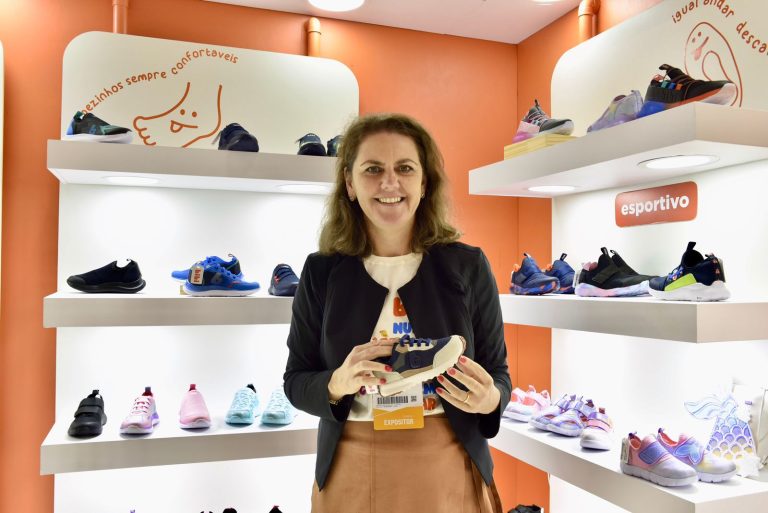São Paulo – In the wake of Brazilian footwear brands that have opened stores in Arab countries to enter the region, Rio Grande do Sul’s Bibi also sees the Gulf as a potential target for its exclusive franchises.
The company’s president, Andrea Kohlrausch, says the region adheres to the business model of Bibi, which besides making and selling children’s footwear and accessories to multi-brand retail in Brazil and other 60 countries, also includes franchising points of sale to entrepreneurs.
“We believe that, after we’ve completed our business expansion mission, the Middle East is a market that adheres to brand franchising and licensing. It’s a target we see for the future,” she told ANBA during her participation in footwear exhibition BFShow in São Paulo.
Bibi’s decision to expand its retail operation was made in 2008, with the launch of the franchising project. Since then, 130 stores have been opened, mostly in malls in big and medium cities in Brazil, establishing what the company dubs the largest children’s footwear retail chain in the country.
But franchising is also important in its internationalization strategy. In addition to Brazilian stores, the brand has other 21 franchises set up in Ecuador, Peru, Guatemala, and Chile. The latter also holds an e-commerce platform.
“Our goal is to reach 100 [stores in Latin America] The model is not only the brand[‘s licensing] but an omnichannel model based on using technologies to sell on moth physical stores and online retailers. We believe this model has also potential in Arab countries,” she said.
Bibi in five Arab countries
While it considers establishing franchises in Arab countries, Bibi is already present in the region via export. The brand’s products are now sold to Lebanon, Egypt, the United Arab Emirates, Oman, and Saudi Arabia.
The company’s president concedes that the pandemic disturbed business in Arab countries by preventing Bibi to join European footwear trade shows often attended by retailers from these countries.
Bibi’s strategy for the region prioritizes a direct relationship with retail as opposed to distributors. The reasoning is that trading without intermediaries can generate better margins and ship higher volumes.
To the Mostafawi Group
But despite the pandemic getting in the way, the brand remains in the Gulf with its history of quality. Indeed, the Mostafawi Group, which operates fast-fashion stores in the UAE and was at the BF Show, sought Bibi for a new partnership. Here’s more on this.
According to Kohlrausch, Bibi and the Mostafawi Group have been negotiating since last year to take a selection of products from the Brazilian footwear brand to a department store the Emirati group plans on opening in Dubai by March 2025.
“We already have a selection [of products] and we’ve worked to translate all this in actual business. When they open the store, we hope to have Bibi products sold there, too,” she said.
The selection includes products that have proven to sell well in foreign markets like roller shoes and products with the Fisioflex shoe inserts that promises the sensation of “walking barefoot,” Kohlrausch says.
For the Mostafawi Group’s project, the company has also prepared a selection of footwear for babies with a technology that makes learning to walk easier.
Read more:
Abu Dhabi to have 2 Piccadilly stores this year
Brazil’s footwear exports to Arabs down
Arab buyers seeks out footwear in Brazil
Kidy choose to make Arabs its next export target
Report by Daniel Medeiros, especially for ANBA
Translated by Guilherme Miranda




